-
 Bitcoin
Bitcoin $114400
1.32% -
 Ethereum
Ethereum $3499
2.20% -
 XRP
XRP $2.922
4.26% -
 Tether USDt
Tether USDt $0.0000
0.03% -
 BNB
BNB $752.6
1.53% -
 Solana
Solana $161.8
1.64% -
 USDC
USDC $0.9999
0.01% -
 TRON
TRON $0.3267
1.32% -
 Dogecoin
Dogecoin $0.1991
3.02% -
 Cardano
Cardano $0.7251
3.29% -
 Hyperliquid
Hyperliquid $38.32
3.36% -
 Stellar
Stellar $0.3972
7.58% -
 Sui
Sui $3.437
2.74% -
 Chainlink
Chainlink $16.29
3.65% -
 Bitcoin Cash
Bitcoin Cash $545.3
3.70% -
 Hedera
Hedera $0.2482
7.49% -
 Ethena USDe
Ethena USDe $1.001
0.03% -
 Avalanche
Avalanche $21.40
2.02% -
 Toncoin
Toncoin $3.579
1.56% -
 Litecoin
Litecoin $109.3
2.20% -
 UNUS SED LEO
UNUS SED LEO $8.951
-0.18% -
 Shiba Inu
Shiba Inu $0.00001220
2.75% -
 Polkadot
Polkadot $3.613
2.99% -
 Uniswap
Uniswap $9.173
3.78% -
 Monero
Monero $302.6
2.62% -
 Dai
Dai $0.0000
0.00% -
 Bitget Token
Bitget Token $4.320
1.52% -
 Pepe
Pepe $0.00001048
3.40% -
 Cronos
Cronos $0.1314
4.33% -
 Aave
Aave $259.4
3.54%
how blockchain technology is used to innovate games
Blockchain technology is revolutionizing gaming by enabling verifiable ownership of digital assets, incentivizing players through play-to-earn models, and creating decentralized in-game marketplaces.
Oct 21, 2024 at 08:11 am
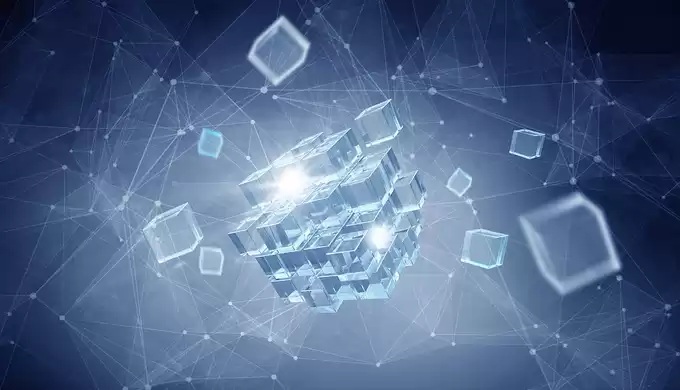
How Blockchain Technology is Revolutionizing Gaming
1. Verifiably Ownable Digital Assets
Blockchain allows for the creation of non-fungible tokens (NFTs) that represent unique in-game items. These NFTs are stored on a decentralized ledger, ensuring that players have verifiable ownership of their digital assets. This eliminates the potential for fraud or duplication, enhancing the value of virtual goods.
2. Play-to-Earn Games
Blockchain technology enables the integration of cryptocurrency rewards into games. By participating in gameplay, players can earn in-game tokens or collectible NFTs that can be redeemed for real-world currency or other valuable items. This model incentivizes players and creates a new revenue stream for game developers.
3. Decentralized In-Game Marketplaces
Blockchain allows for the creation of decentralized marketplaces where players can buy, sell, and trade in-game items. These marketplaces are peer-to-peer, eliminating the need for intermediaries and providing players with greater control over their assets.
4. Enhanced Interoperability
Blockchain technology promotes interoperability between games, allowing players to bring their digital assets and progress from one game to another. This creates a more connected gaming ecosystem where players can enjoy a wider range of experiences and build upon their accomplishments across different platforms.
5. Improved Transparency and Trust
Blockchain's immutable and transparent nature provides players with greater assurance that their in-game transactions are fair and legitimate. The public ledger records all activity on the blockchain, making it difficult for developers to manipulate the rules or engage in pay-to-win schemes.
6. Enhanced Security
Blockchain technology offers robust security measures that protect players from hacking and fraud. The decentralized nature of blockchain makes it nearly impossible for malicious actors to manipulate or steal in-game assets.
7. New Opportunities for Monetization
Blockchain provides game developers with new ways to monetize their games through the sale of NFTs, in-game tokens, and other digital assets. This allows them to diversify their revenue streams and explore new business models that incentivize player participation.
8. Creative and Innovative Games
Blockchain technology opens up possibilities for innovative game designs and experiences. Developers can create games with unique mechanics and features that leverage the decentralized nature of the blockchain, resulting in fresh and immersive experiences for players.
Disclaimer:info@kdj.com
The information provided is not trading advice. kdj.com does not assume any responsibility for any investments made based on the information provided in this article. Cryptocurrencies are highly volatile and it is highly recommended that you invest with caution after thorough research!
If you believe that the content used on this website infringes your copyright, please contact us immediately (info@kdj.com) and we will delete it promptly.
- BCUT: Support Holds, Accumulation Hints at Potential Reversal
- 2025-08-04 10:50:12
- Bitcoin's Bullish Expansion: Decoding Bollinger Bands and Whale Bets
- 2025-08-04 10:55:12
- XRP, Solana, and Whales: Decoding the Crypto Tides
- 2025-08-04 11:10:11
- BlockDAG's Grand Finale: Auction Fever and the Dawn of a New Era
- 2025-08-04 10:30:12
- Kaia Files: Will South Korea Embrace a KRW-Pegged Stablecoin?
- 2025-08-04 10:30:12
- Kaspa, HBAR, and Cold Wallet: A New York Minute on Crypto's Latest Moves
- 2025-08-04 09:11:54
Related knowledge
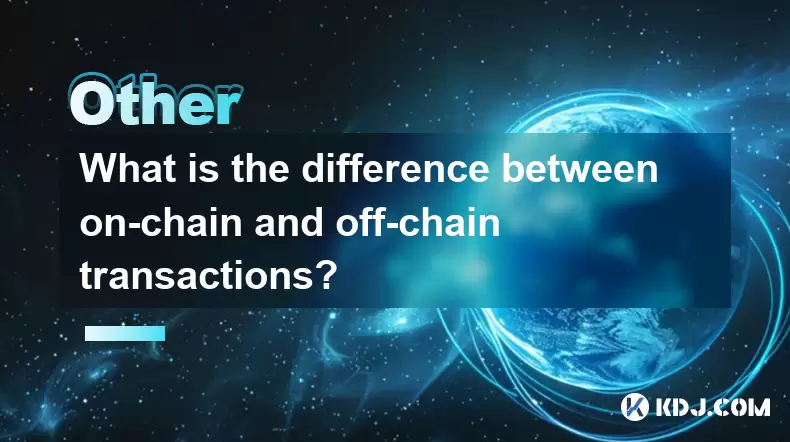
What is the difference between on-chain and off-chain transactions?
Aug 02,2025 at 04:22pm
Understanding On-Chain TransactionsOn-chain transactions refer to digital asset transfers that are recorded directly on a blockchain ledger. These tra...
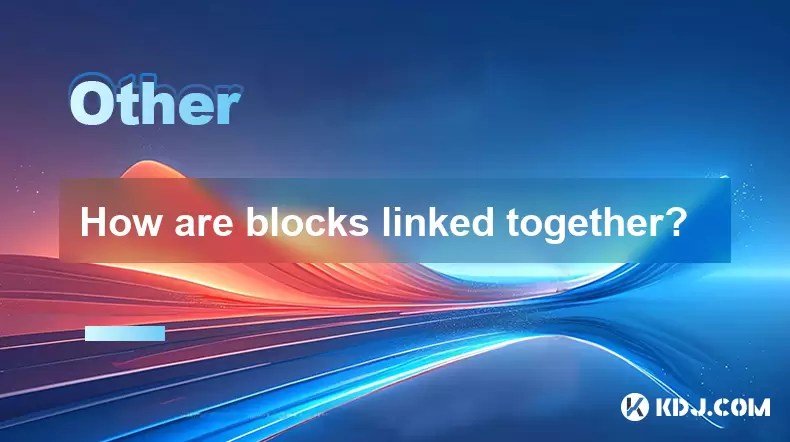
How are blocks linked together?
Aug 04,2025 at 06:56am
Understanding the Structure of a BlockchainA blockchain is a decentralized digital ledger composed of a sequence of blocks, each containing a list of ...
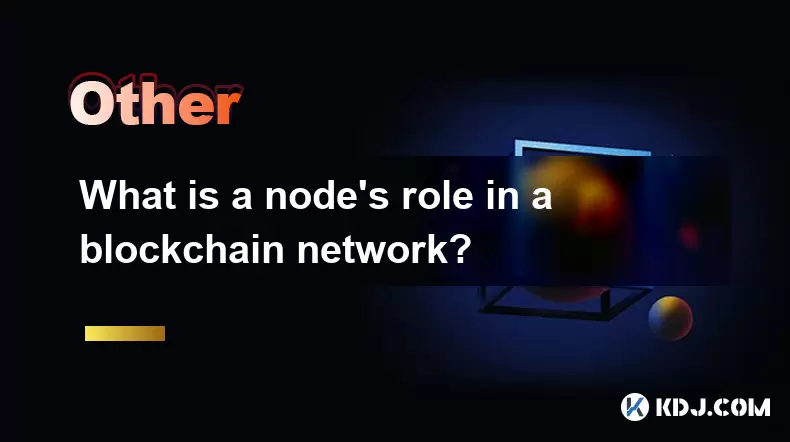
What is a node's role in a blockchain network?
Aug 03,2025 at 03:16pm
Understanding the Function of a Node in a Blockchain NetworkA node is a fundamental component of any blockchain network, acting as a participant that ...
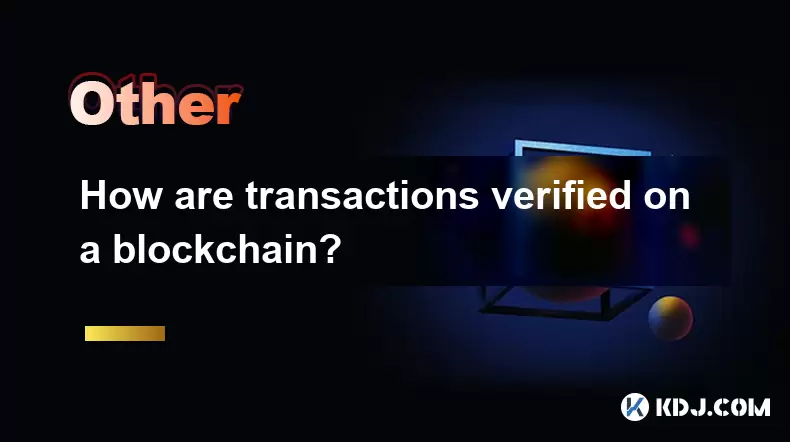
How are transactions verified on a blockchain?
Aug 04,2025 at 12:35am
Understanding the Role of Nodes in Transaction VerificationIn a blockchain network, nodes are fundamental components responsible for maintaining the i...
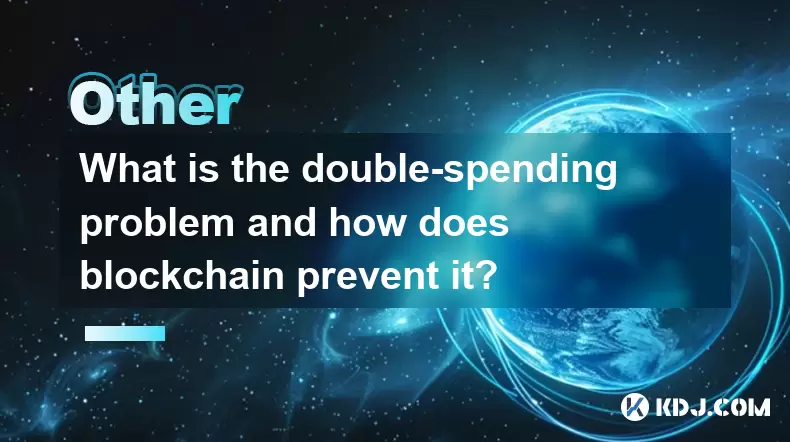
What is the double-spending problem and how does blockchain prevent it?
Aug 02,2025 at 01:07pm
Understanding the Double-Spending ProblemThe double-spending problem is a fundamental challenge in digital currency systems where the same digital tok...
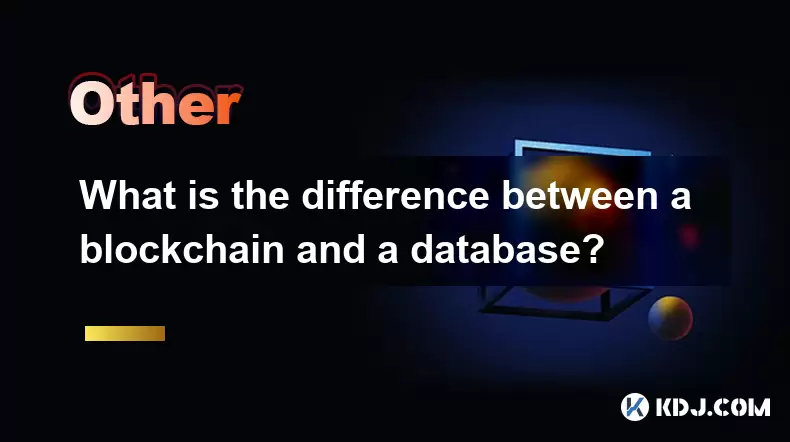
What is the difference between a blockchain and a database?
Aug 01,2025 at 09:36pm
Understanding the Core Structure of a BlockchainA blockchain is a decentralized digital ledger that records data in a series of immutable blocks linke...

What is the difference between on-chain and off-chain transactions?
Aug 02,2025 at 04:22pm
Understanding On-Chain TransactionsOn-chain transactions refer to digital asset transfers that are recorded directly on a blockchain ledger. These tra...

How are blocks linked together?
Aug 04,2025 at 06:56am
Understanding the Structure of a BlockchainA blockchain is a decentralized digital ledger composed of a sequence of blocks, each containing a list of ...

What is a node's role in a blockchain network?
Aug 03,2025 at 03:16pm
Understanding the Function of a Node in a Blockchain NetworkA node is a fundamental component of any blockchain network, acting as a participant that ...

How are transactions verified on a blockchain?
Aug 04,2025 at 12:35am
Understanding the Role of Nodes in Transaction VerificationIn a blockchain network, nodes are fundamental components responsible for maintaining the i...

What is the double-spending problem and how does blockchain prevent it?
Aug 02,2025 at 01:07pm
Understanding the Double-Spending ProblemThe double-spending problem is a fundamental challenge in digital currency systems where the same digital tok...

What is the difference between a blockchain and a database?
Aug 01,2025 at 09:36pm
Understanding the Core Structure of a BlockchainA blockchain is a decentralized digital ledger that records data in a series of immutable blocks linke...
See all articles

























































































